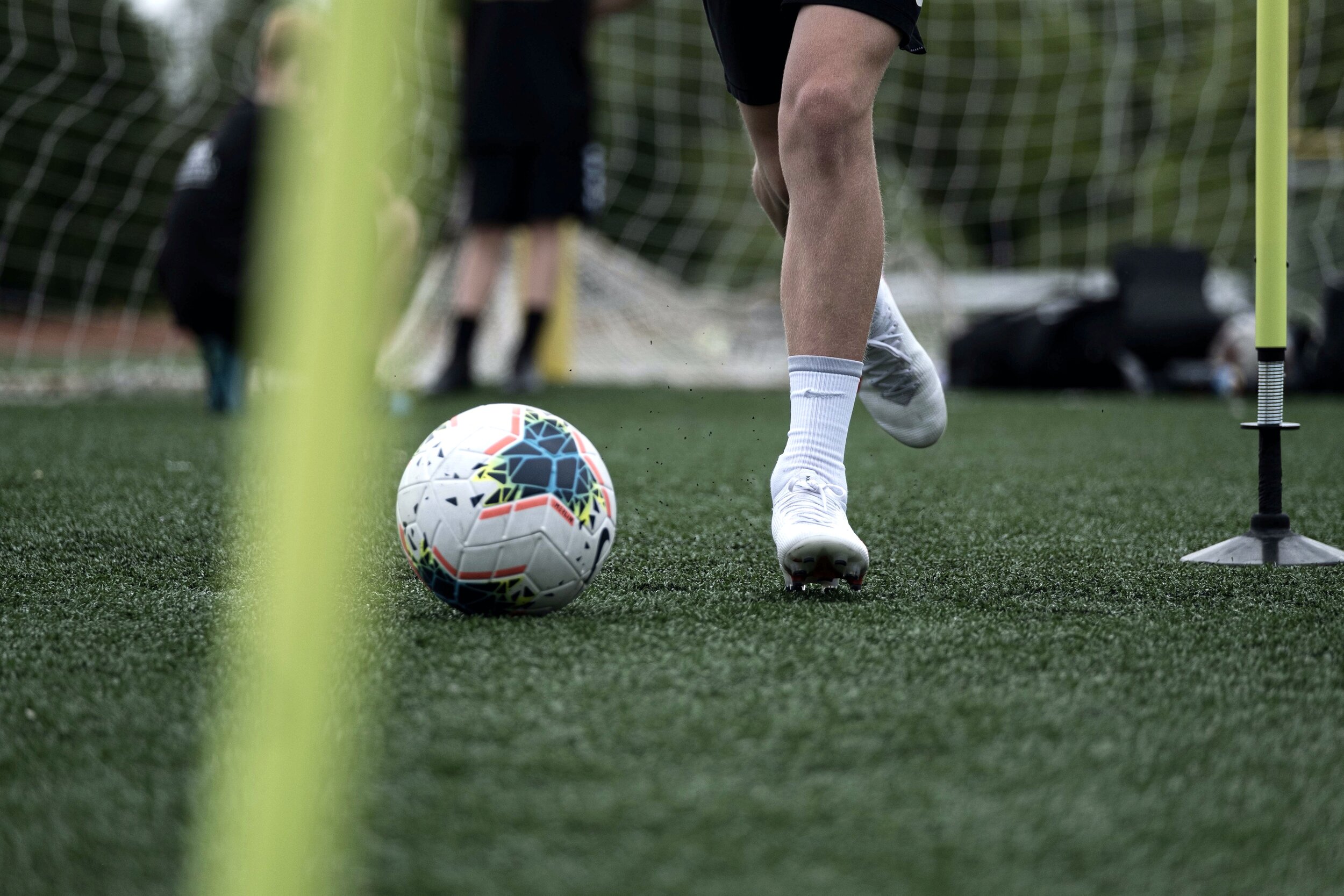
THE PDXFA TRAINING MODEL
PDXFA focuses on developing the whole player by creating a platform that encompasses the 4 pillars of the game (Technical, Tactical, Physical, and Psychological).
By creating sessions that put the player into situations that spotlight key areas of their game we believe this is what makes PDXFA different. Always in a game-like, high-intensity, competitive, and performance-driven environment.
HIGH-PERFORMANCE ENVIRONMENT
PDXFA is designed for the most committed and driven athletes. Because of this, we can always guarantee our sessions will be high intensity, challenging, and with high-level content.
Our sessions are delivered by dedicated coaches who believe in creating a competitive, development focussed culture for all of our programs.
GAME LIKE CONDITIONS
All of our programs are designed with the goal of creating decision making moments in a game-like environment. We believe this is the true way to develop a player with technical proficiency and a high soccer IQ,
CUTTING EDGE EQUIPMENT
PDXFA has committed to utilizing different forms of training equipment to create game-like situations. We will invest in technology that we believe will not only enhance the player’s experience but become a vital tool for their ongoing development. The equipment and technology that we decide to invest in will be important to the ongoing development of the program and the training environment for our athletes.
PSYCHOLOGICAL TRAINING
The PDXFA staff will work on each player’s mental approach to training and games. In addition, there will be a self-reflection piece that players will be encouraged to embrace. We firmly believe that tactical guidance for the players accelerates the learning process. We will also provide athletes with the tools to develop their behavioral traits both on and off the pitch.

‘Football’s for Thinkers.’
As a young player, you don’t grasp the magnitude of the statement ‘Football’s for Thinkers’. But if you think deeply, playing the game is about processing information and making decisions based on that information.
The best players gather the most accurate information, make accurate predictions about the future state of the playing environment and make the optimal decisions based on that information.
They have a menu or list in their head at all times. Top of this list is the question, can I score? From this list there is branching logic. If the answer is yes, the next question might be, when can I score? Then, where can I score? How can I score? etc, etc, etc. Every millisecond, the environment changes, a new set of questions arise, and new predictions and decisions must be made.
As a coach we’re taught the 5 W’s, who, what, where, when and why. These provide a guide that helps coaches create game like situations, in the more controlled environment of the training session. They are used to define exactly who we’re working with, where on the field the action is taking place, what phase of the play this is taking place in (Attacking, defending, Transition to Attack, Transition to defend), what we’re trying to improve and why this will help the players. Training sessions should ultimately be designed to prepare the players for the game. The game is the ultimate test of a player’s decision-making processes and this process is never made in isolation.
Players operate in a chaotic environment, with opposing players and teammates constantly shifting position and providing additional information (both physically and verbally). The state of the game, the players location on the pitch, environmental factors, principles of play and tactics all influence a player’s choices.
Over time (If coached effectively) the pictures that the players see become more familiar, based on their experience of certain situations they are better able to predict likely outcomes.
The faster, more reliably a player can gather information, the more accurately they can predict the future and make decisions to exploit that future state, the better the player becomes.
‘A session that does not challenge a player’s decision-making, is not a valuable session.’




